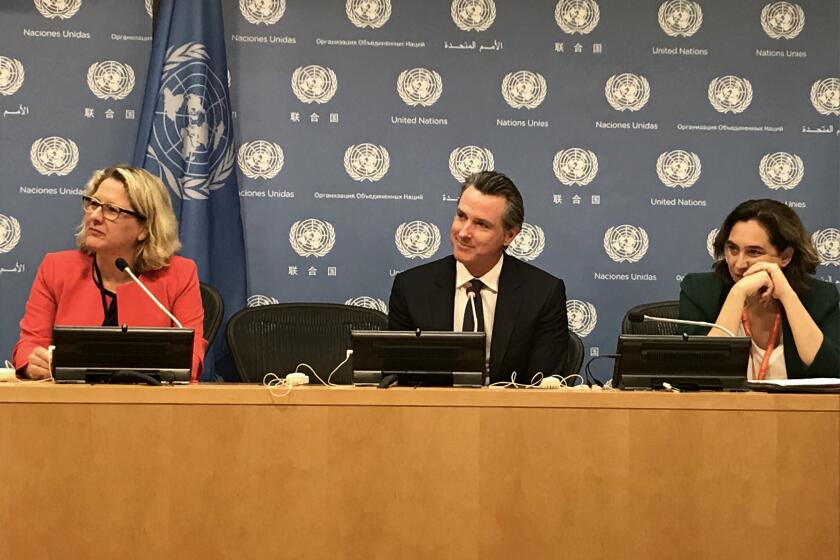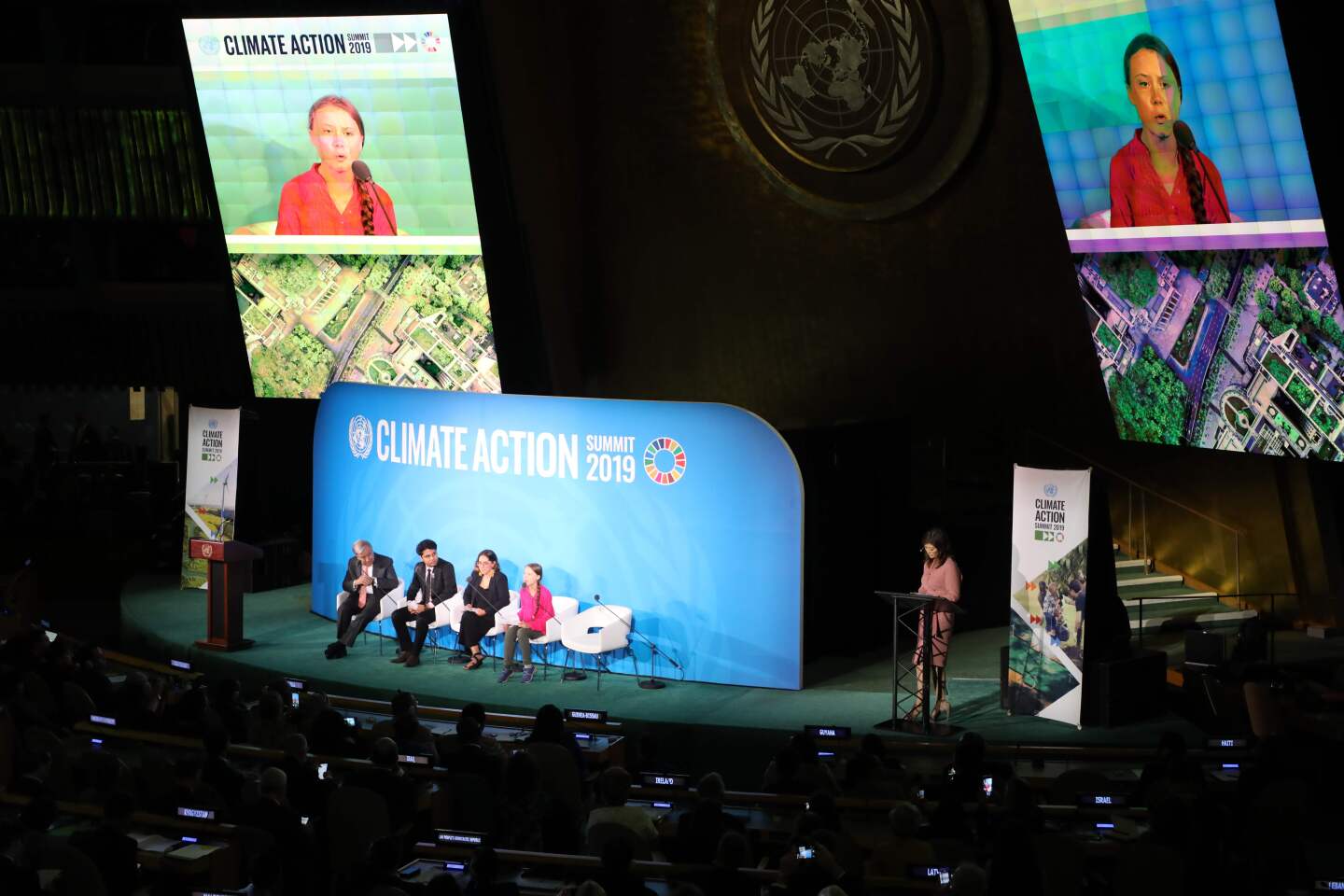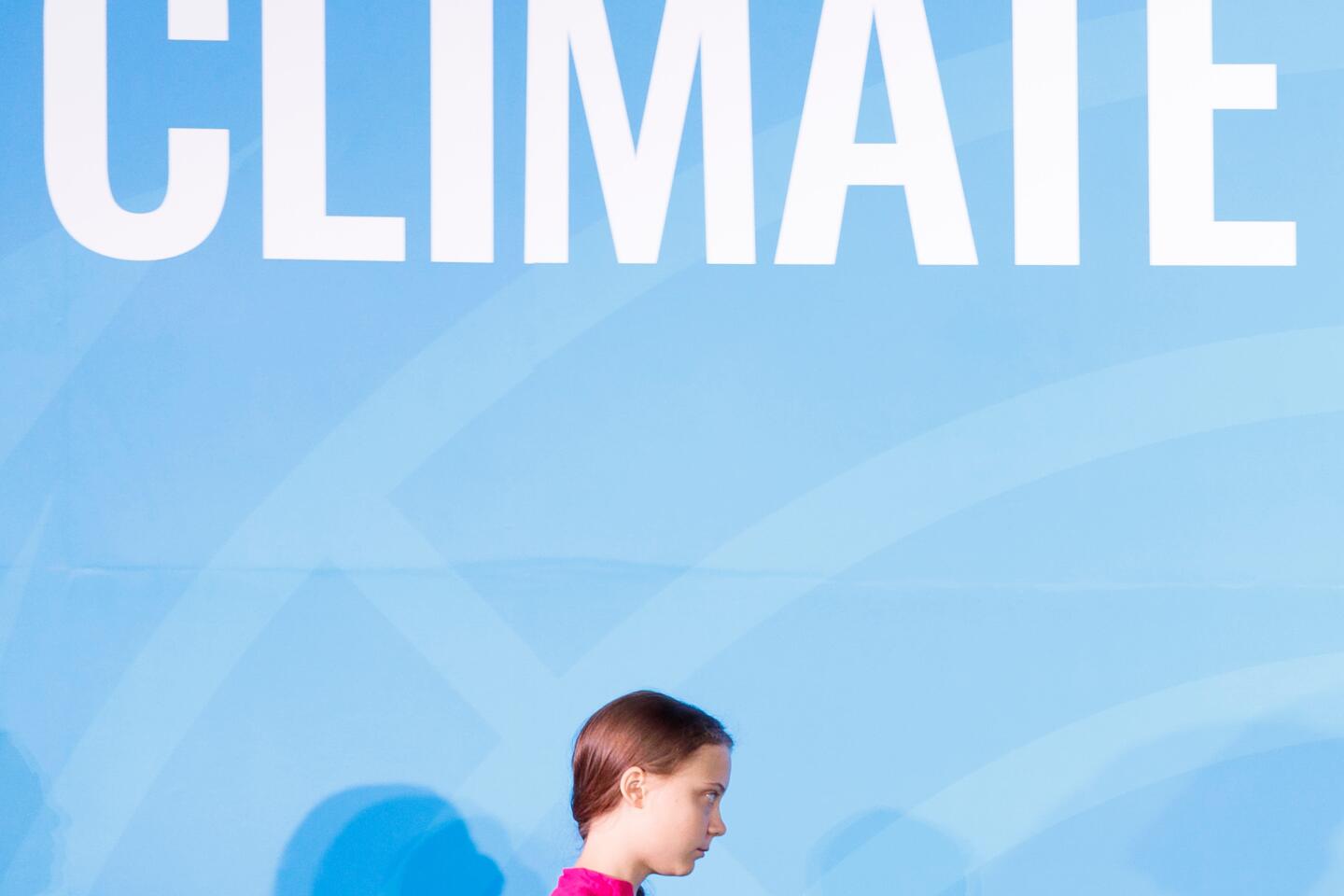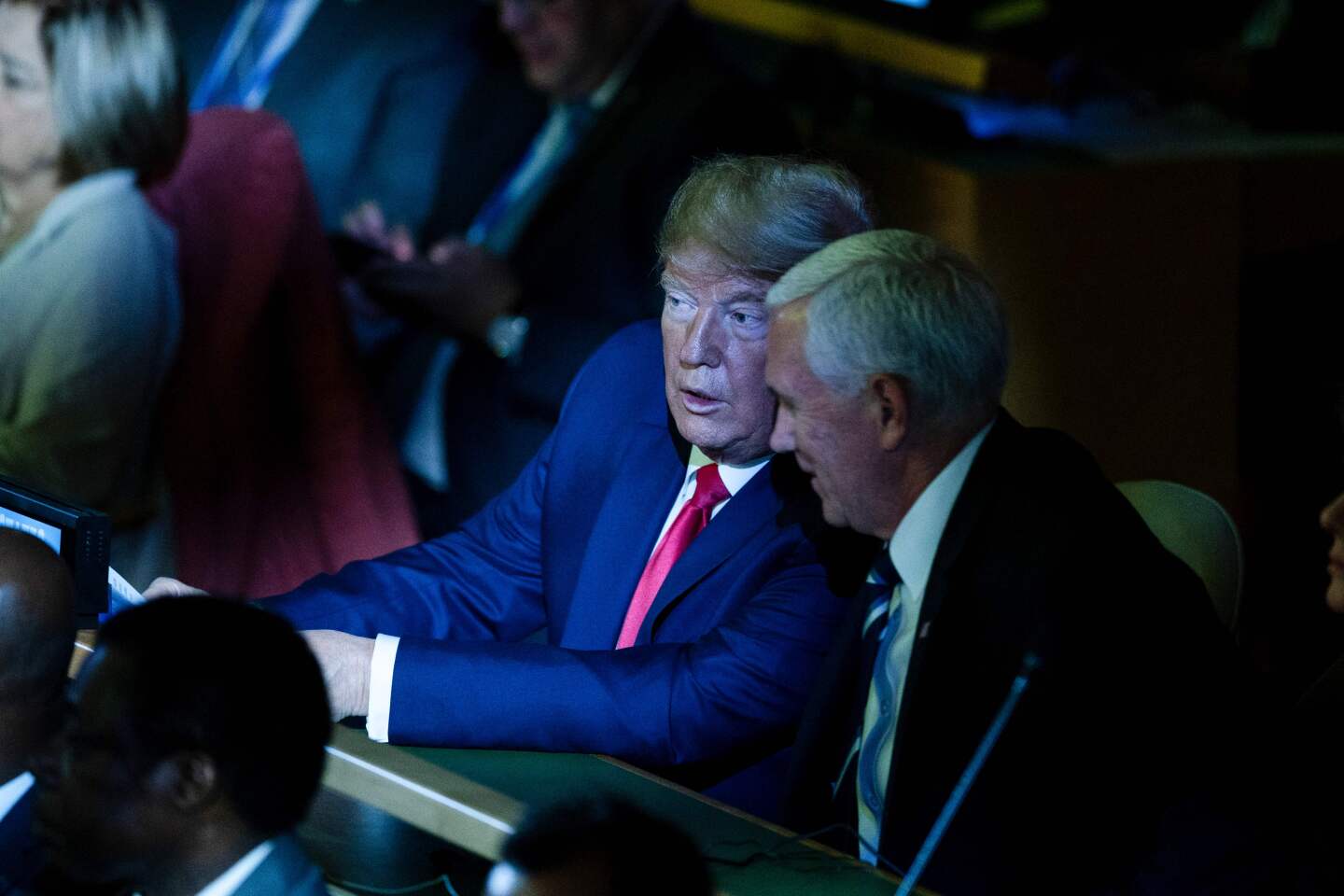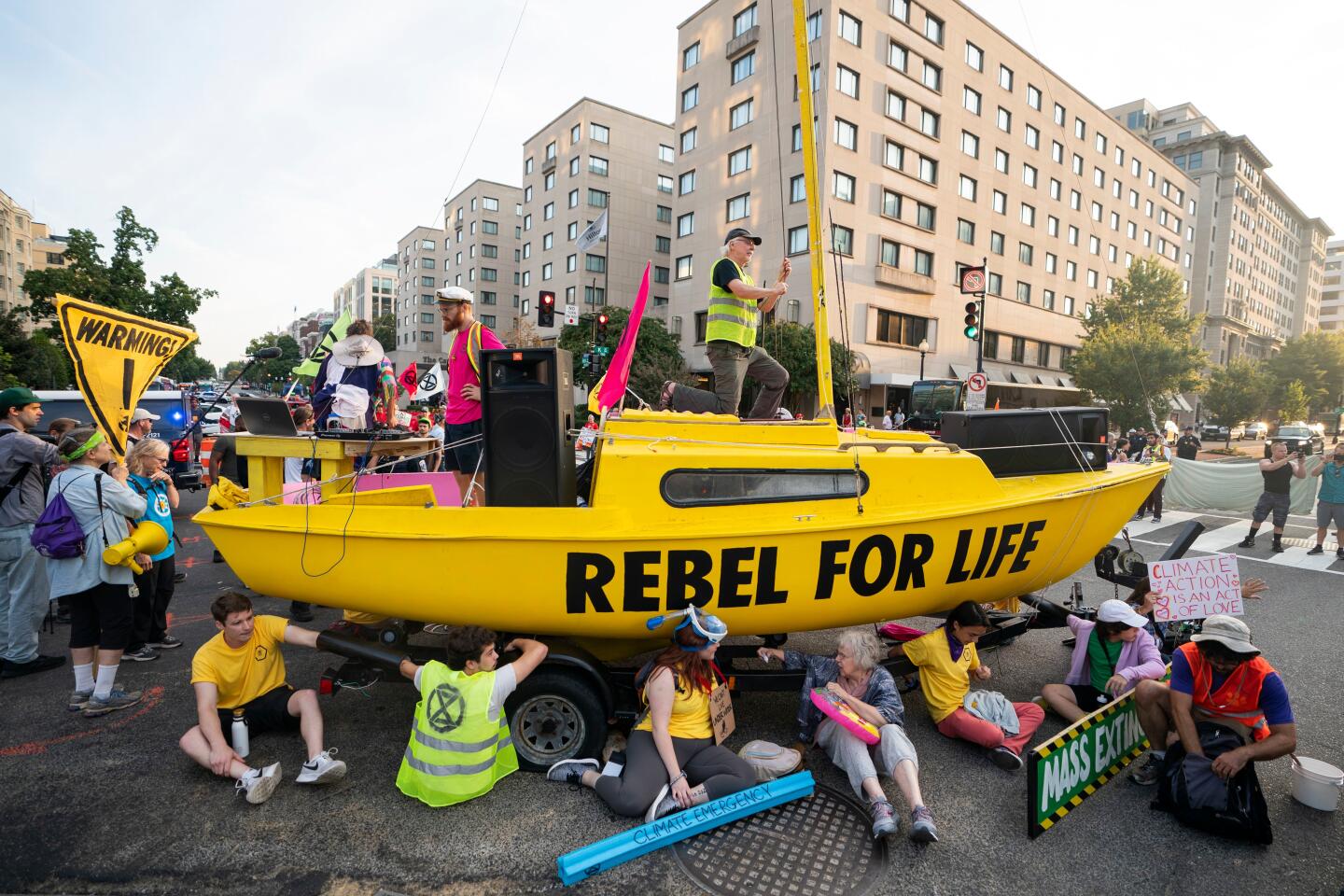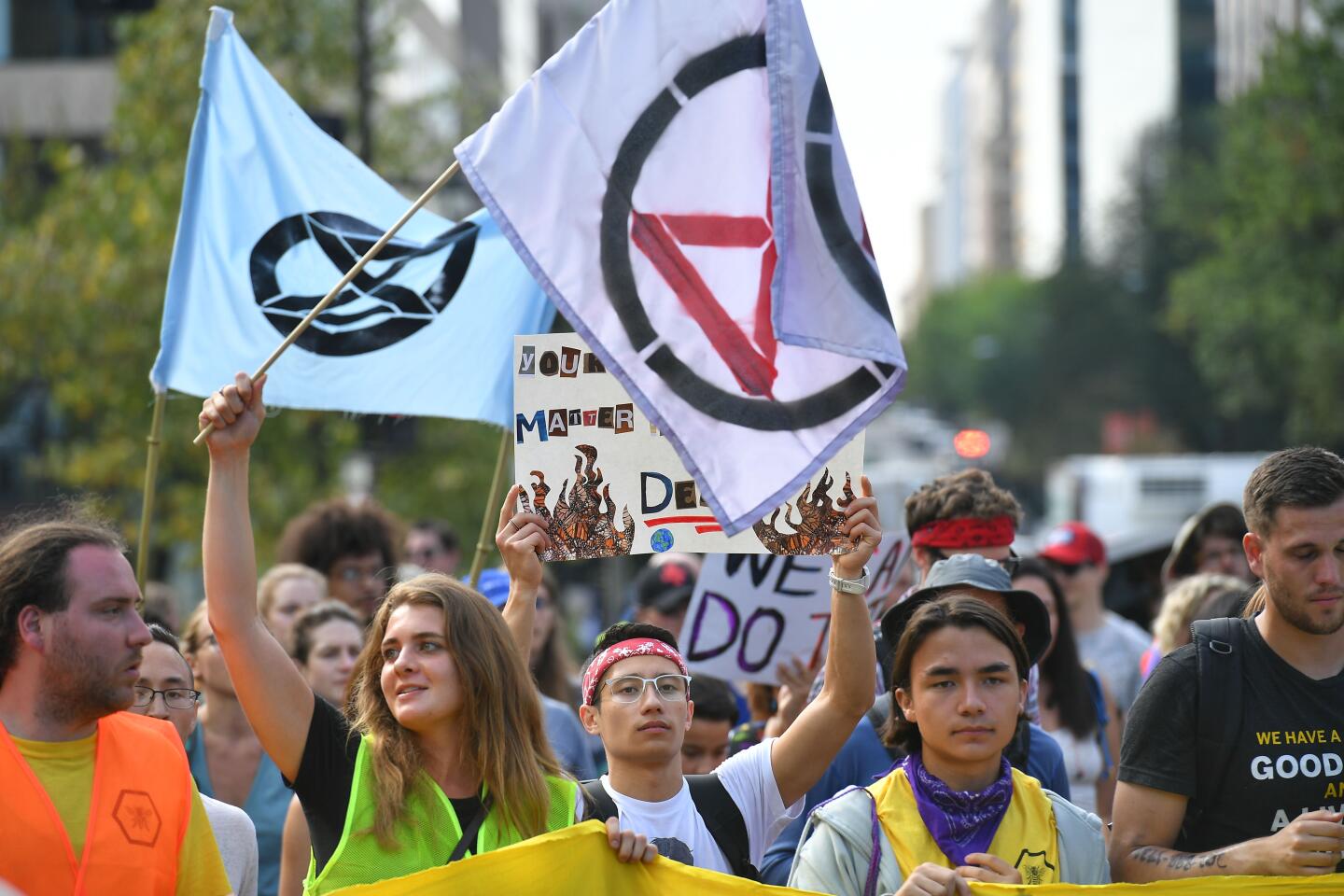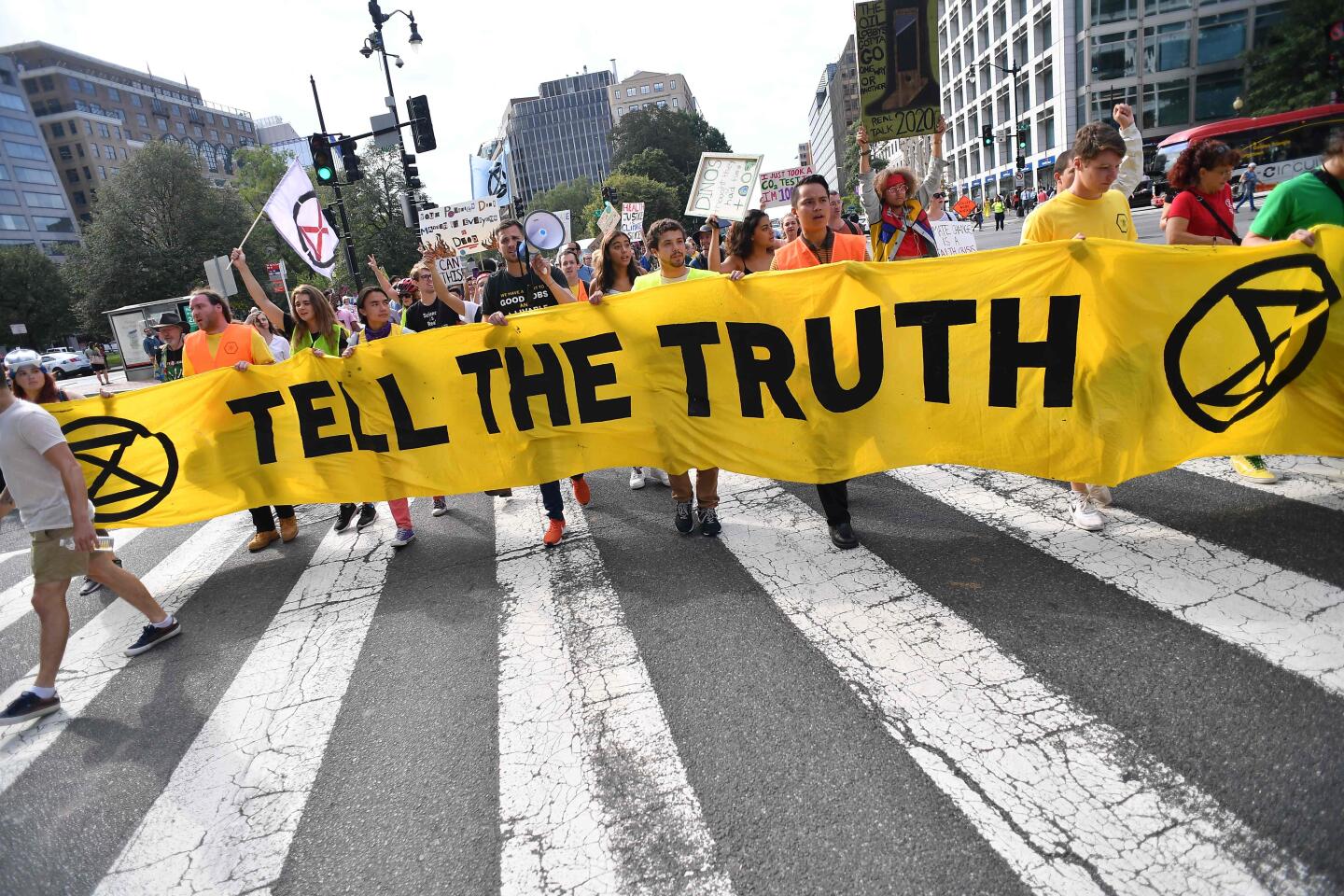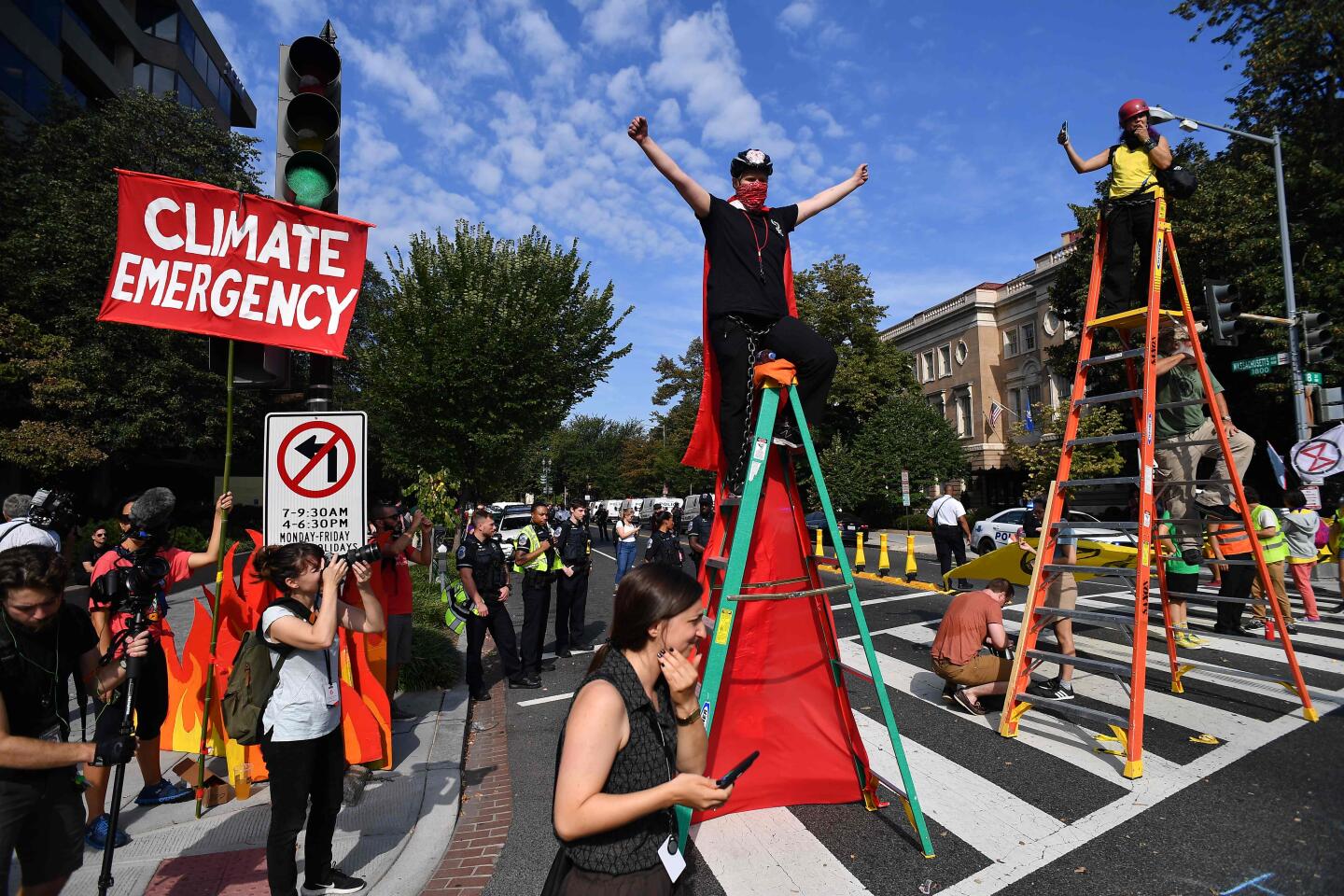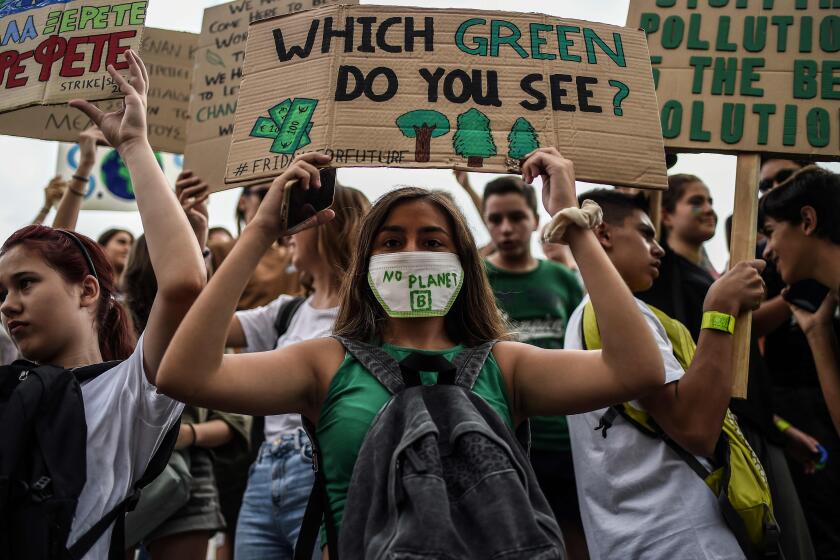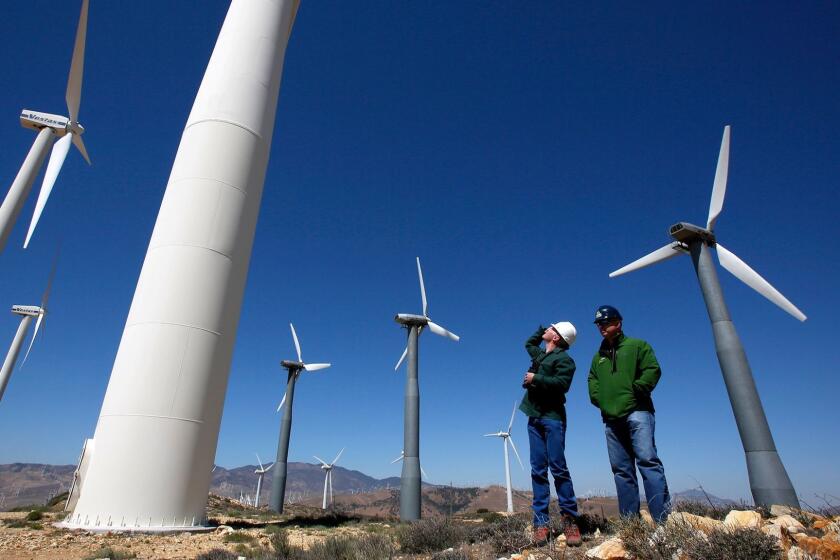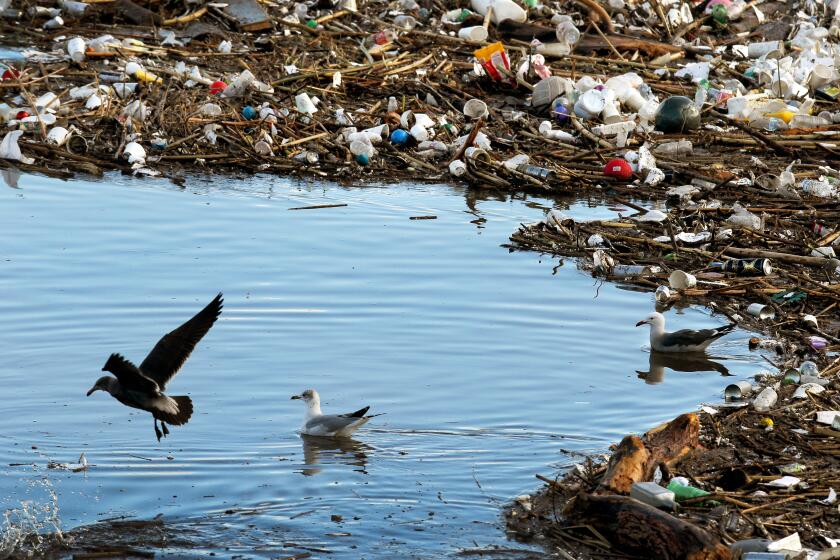Trump briefly attends U.N. climate summit; Greta Thunberg rails against ‘empty words’

UNITED NATIONS — The U.N. Climate Action Summit kicked off in New York on Monday, but young environmental activists are already looking beyond the official gathering, a recognition that it will take sustained pressure to spur governments, many of them allied with the fossil fuel industry, to take meaningful action.
As the summit got underway, 16-year-old Swedish activist Greta Thunberg delivered a blunt and emotional speech excoriating world leaders for their inaction.
“You all come to us young people for hope. How dare you,” said Thunberg, the most prominent face of the youth climate movement since launching school strikes last year. “You have stolen my dreams and my childhood with your empty words.”
She added: “If you choose to fail us, I say we will never forgive you. We will not let you get away with this.”
Those admonitions from Thunberg and other youth activists opened the daylong United Nations summit, featuring leaders from more than 60 countries along with businesses and other organizations. Each will be allowed three minutes to reveal plans to step up emissions reductions.
Organizers hope it will help build momentum to pressure national leaders indifferent to climate change, including those from the United States, Brazil and Australia — world powers that will be noticeably absent from the summit stage.
California Gov. Gavin Newsom is in New York for the United Nations Climate Action Summit, his first big stage at events bringing together international leaders together to address climate change.
But the young activists who have held massive rallies worldwide, demanding action instead of words in the fight against global warming, will probably be disappointed by what comes from this summit. They are already planning more protests for this Friday, for a meeting they expect to fall far short of their demands.
Niklas Hoehne, a partner at the German think tank NewClimate Institute, expects some announcements that will grow the ranks of small and medium-sized countries committing to move to renewable energy and zero emissions.
“But I don’t expect a major breakthrough,” he said. “It’s an important political moment, but it will not do the trick.”
U.N. Secretary-General Antonio Guterres urged world leaders to come not with “fancy speeches,” but with concrete plans to cut more planet-heating pollution than their countries agreed to in the landmark 2015 Paris agreement.
Dozens of countries are expected to pledge to reduce their emissions to carbon-neutral levels by mid-century. India Prime Minister Narendra Modi promised to bring online more renewable energy. German Chancellor Angela Merkel pledged to double financial contributions to a global climate change fund. Shipping, steel and cement executives will detail plans to slash emissions from their industries.
Analysts are paying close attention to China — the world’s biggest emitter of greenhouse gases — but aren’t counting on a specific announcement to hasten emissions reductions.
Today, few countries are on track to meet even the modest pollution cuts they agreed to in the Paris accord. Next year they face a deadline to set tougher targets, and leaders are being asked to outline those commitments now.
But by the eve of the summit, only 23 small and medium-sized countries, representing about 2.3% of global emissions, had announced their intent to step up their actions to fight climate change, and none of the highest-polluting nations had done so, according to the World Resources Institute think tank.
Young people see climate change as a profound injustice and an existential threat. But they believe the world can still do something about it.
One central reason is the power of fossil fuel interests and how deeply entrenched they remain in world powers most responsible for spewing planet-heating emissions.
Guterres had said that speaking slots would be going only to those countries with the most ambitious and credible climate actions to announce. He wanted those appearing onstage to commit to key principles, including an end to building new coal plants after 2020.
But some of the countries scheduled to speak Monday are deeply invested in the continued use of the dirtiest fossil fuels. These include China and India, which have plans to continue developing coal mines and coal-fired power plants. Major oil producers, including Russia and Qatar, are also scheduled to appear.
The world is struggling to to meet its climate change goals, but a handful of countries have found ways to significantly cut their greenhouse gas emissions.
Another major obstacle, experts say, is the tough reality that the world has turned more hostile to climate action since the Paris accord was forged. The United States is among a number of countries that have shifted inward toward economic nationalism while increasing support for fossil fuels.
President Trump was not expected to attend the U.N. summit but showed up briefly to listen to Modi and Merkel. His administration is working to attack climate science and undo an array of pollution-cutting policies. Among the most consequential are his intention to withdraw from the Paris agreement and his move to take away California’s authority to set its own, stricter vehicle emissions standards — the latter announced just days before the summit.
California has worked to align its climate policies with international targets, including a commitment to achieve carbon neutrality across the world’s fifth-largest economy by 2045 and legislation that sets a goal of 100% clean energy by the same year.
But the state is an exception.
A U.N. report released Saturday showed that the Group of 20 countries responsible for 80% of global emissions are falling short of meeting even their modest climate pledges under the Paris agreement — steps that alone are insufficient to prevent catastrophic levels of climate change.
“We are not just a little off track, we are really off track,” said Hoehne, a lead author of the report.
Global temperatures have already risen more than 1 degree Celsius since preindustrial times. Unless world leaders drastically and quickly ramp up their efforts, climate scientists warn, the planet is on track for a catastrophic 3-degree Celsius rise in temperature by the end of the century.
Keeping global warming below 2 degrees Celsius, a threshold intended to avoid catastrophic impacts, will require at least a tripling of the emissions reductions promised in the Paris accord. Containing the increase within a somewhat safer 1.5 degrees would mean boosting ambitions at least fivefold: cutting emissions 45% by 2030 and to net zero by mid-century.
Organizers already have sought to tamp down expectations for the summit, saying that it is only one step in a process and that there is still time to iron out stronger pollution reduction targets by 2020.
